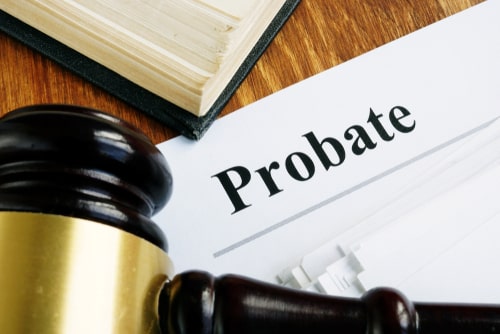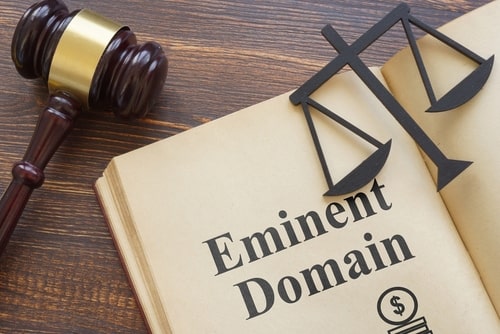Recent Blog Posts
Maximize Your Inheritance with Texas Trusts and Estate Planning
 Texas has unique laws regarding trusts and estates that allow residents to maximize inheritances for their families. Proper estate planning is essential to take advantage of these laws and avoid unnecessary taxes or legal disputes. A Texas lawyer can help you with key strategies you can use to preserve more assets for your loved ones.
Texas has unique laws regarding trusts and estates that allow residents to maximize inheritances for their families. Proper estate planning is essential to take advantage of these laws and avoid unnecessary taxes or legal disputes. A Texas lawyer can help you with key strategies you can use to preserve more assets for your loved ones.
Use Trusts to Avoid Probate
Texas allows the use of revocable living trusts to avoid the probate process on assets placed in the trust. Upon death, assets in a revocable living trust can be distributed immediately to beneficiaries without court intervention. This saves time, legal fees, and the potential for legal challenges. You should consider creating revocable living trusts and re-titling assets, including real estate, bank accounts, and investments into the trust. This ensures a smooth transition of assets upon death.
What Tenants Should Know When Breaking a Lease in Texas
 Sometimes situations happen and you need to somehow get out of a lease. Whether your reason is because of moving, downsizing, or something else, ending a contract before its term can seem impossible. With the right approach, you may have options. A Texas lawyer can help walk you through your specific situation to determine if lease termination is truly the best route or if better solutions exist.
Sometimes situations happen and you need to somehow get out of a lease. Whether your reason is because of moving, downsizing, or something else, ending a contract before its term can seem impossible. With the right approach, you may have options. A Texas lawyer can help walk you through your specific situation to determine if lease termination is truly the best route or if better solutions exist.
Review Your Lease Contract Termination Clauses
First, you will need to examine the termination provisions in your existing lease. Many contracts include negotiated clauses detailing acceptable reasons, proper notices, fees, and processes for early termination. However, termination rights are not guaranteed. Carefully review all terms related to early termination, even if they seem standard at first glance. Specific wording could provide an opening or loophole to get you out of the lease.
Top Mistakes Executors Should Avoid During Texas Probate
 Serving as executor of an estate in Texas comes with significant legal and financial obligations. Settling an estate through the probate process involves intricate steps and rigid deadlines that can easily overwhelm unprepared executors, which is why working with a Texas lawyer is ideal. Even the most competent executor can make simple but costly errors that lead to family disputes, tax penalties, lawsuits, and improper distributions.
Serving as executor of an estate in Texas comes with significant legal and financial obligations. Settling an estate through the probate process involves intricate steps and rigid deadlines that can easily overwhelm unprepared executors, which is why working with a Texas lawyer is ideal. Even the most competent executor can make simple but costly errors that lead to family disputes, tax penalties, lawsuits, and improper distributions.
Executor mistakes not only jeopardize the deceased’s final wishes, but also add stress at an already difficult time for loved ones. By understanding the most common pitfalls executors face, you can avoid these missteps and effectively carry out administrator duties.
Failing to Locate All Relevant Estate Planning Documents
Before any other step, the executor must collect and review the decedent’s core estate planning documents to identify beneficiaries, assets, debts, and distribution instructions. These important papers include the last will and testament, revocable living trusts, life insurance policies with specified beneficiaries, 401(k) plans and IRAs with named recipients, and any other materials impacting asset distribution. Missing or outdated documents can derail the entire probate administration process.
How General Counsel Can Help the Formation Process of a Business
 Forming a new business involves navigating a complex legal landscape, and seeking the assistance of a general counsel during the formation process can be invaluable. If you are looking to start a business, contact a lawyer to ensure that all proper protocol is followed during the formation process. There are some people out there who may be inclined to start their business on their own instead of hiring a legal professional as a way of saving money. This logic is misguided, as forming a business without the legal assistance of an attorney can prove catastrophic in ensuring that everything about your business is in accordance with the law.
Forming a new business involves navigating a complex legal landscape, and seeking the assistance of a general counsel during the formation process can be invaluable. If you are looking to start a business, contact a lawyer to ensure that all proper protocol is followed during the formation process. There are some people out there who may be inclined to start their business on their own instead of hiring a legal professional as a way of saving money. This logic is misguided, as forming a business without the legal assistance of an attorney can prove catastrophic in ensuring that everything about your business is in accordance with the law.
What is a Material Breach of Contract?
 Contracts play a vital role in business and commercial law, outlining the rights and responsibilities of the parties involved. However, when it comes to contracts, not all breaches are the same. In simple terms, a material breach of contract occurs when someone does not do what they promised they would do in the contract, significantly harming the other party’s rights or benefits. It is essential to understand the concept of a material breach of contract in straightforward terms, helping individuals understand its importance, implications, and how a Texas business lawyer can help if you are dealing with an individual or entity who has engaged in a material breach of contract.
Contracts play a vital role in business and commercial law, outlining the rights and responsibilities of the parties involved. However, when it comes to contracts, not all breaches are the same. In simple terms, a material breach of contract occurs when someone does not do what they promised they would do in the contract, significantly harming the other party’s rights or benefits. It is essential to understand the concept of a material breach of contract in straightforward terms, helping individuals understand its importance, implications, and how a Texas business lawyer can help if you are dealing with an individual or entity who has engaged in a material breach of contract.
Unpacking the Seriousness of a Material Breach of Contract
To determine if a breach is material, we must consider a few key factors:
What Is Eminent Domain and How Does It Work?
 The founders of the United States anticipated that the government may, from time to time, want to take over private property in order to complete a project on behalf of the broader public. They ultimately decided to restrict this governmental right somewhat in the Fifth Amendment of the U.S. Constitution, which insists that “nor shall private property be taken for public use, without just compensation.” Therefore, the process of eminent domain in the United States involves the government taking private property for public use and compensating the original owner of the property for that taking. Those who are facing condemnation actions as a result of eminent domain concerns generally benefit from working with an attorney experienced in these matters because seeking just compensation is not always an easy task.
The founders of the United States anticipated that the government may, from time to time, want to take over private property in order to complete a project on behalf of the broader public. They ultimately decided to restrict this governmental right somewhat in the Fifth Amendment of the U.S. Constitution, which insists that “nor shall private property be taken for public use, without just compensation.” Therefore, the process of eminent domain in the United States involves the government taking private property for public use and compensating the original owner of the property for that taking. Those who are facing condemnation actions as a result of eminent domain concerns generally benefit from working with an attorney experienced in these matters because seeking just compensation is not always an easy task.
The Importance of Digital Estate Planning
 Regardless of whether you have an estate plan in place yet or not, if you are an adult in the U.S. and you have not yet engaged in digital estate planning, it is time to make some effort in service of this particular legally-enforceable endeavor. No matter what your circumstances may be, digital estate planning will help to ensure that your wishes concerning your digital footprint are ultimately honored in the event of your medical incapacitation or death. Making this effort will also help to ensure that you do not leave behind a digital mess that your loved ones will be compelled to clean up.
Regardless of whether you have an estate plan in place yet or not, if you are an adult in the U.S. and you have not yet engaged in digital estate planning, it is time to make some effort in service of this particular legally-enforceable endeavor. No matter what your circumstances may be, digital estate planning will help to ensure that your wishes concerning your digital footprint are ultimately honored in the event of your medical incapacitation or death. Making this effort will also help to ensure that you do not leave behind a digital mess that your loved ones will be compelled to clean up.
Protecting Your Interests
Take a moment to estimate how many password-protected accounts you access online every month or two. If you are like most adults, you bank, share digital media, upload evidence of memories, network, and otherwise engage with the electronic world via dozens of accounts on a fairly regular basis. Creating a digital estate plan will allow you to articulate what you want to bef done with those accounts – and by whom – in the event of your death or incapacitation so that those wishes can become legally enforceable.
Understanding the New Texas Trucking Litigation Law
 For years, trucking companies in Texas and throughout the U.S. have protested the ease with which plaintiffs who have been injured in trucking accidents can tie businesses up in litigation. Most trucking accidents that involve more than one party occur because one or more vehicle operators have made an error when driving. It is, therefore, often appropriate to question whether a truck operator has made a mistake that contributed to the cause(s) of a crash. However, it is rarely appropriate to assume that a truck operator’s human error is rooted in the business practices of their employer.
For years, trucking companies in Texas and throughout the U.S. have protested the ease with which plaintiffs who have been injured in trucking accidents can tie businesses up in litigation. Most trucking accidents that involve more than one party occur because one or more vehicle operators have made an error when driving. It is, therefore, often appropriate to question whether a truck operator has made a mistake that contributed to the cause(s) of a crash. However, it is rarely appropriate to assume that a truck operator’s human error is rooted in the business practices of their employer.
Texas lawmakers have taken notice of the frequency with which injury victims name trucking companies as defendants in litigated disputes and they have recently taken significant action to address this situation. In implementing a new bifurcated truck litigation scheme, Texas legislators have made it less likely that trucking companies will be tied up in litigation when their business and employment practices have nothing to do with the cause of a crash.
How Are Corporations Managed?
 If you are thinking about structuring a new business venture as a corporation, you may understandably have concerns about partially surrendering control of your vision to other stakeholders. While it is true that corporations are generally owned by more than one shareholder and are managed by boards of directors, you can approach your business in a number of ways that will help to preserve your vision. Structuring your company as a corporation does not mean that your venture will no longer be “yours.”
If you are thinking about structuring a new business venture as a corporation, you may understandably have concerns about partially surrendering control of your vision to other stakeholders. While it is true that corporations are generally owned by more than one shareholder and are managed by boards of directors, you can approach your business in a number of ways that will help to preserve your vision. Structuring your company as a corporation does not mean that your venture will no longer be “yours.”
How Does a Board of Directors Operate?
Although there are some exceptions to this structure, most corporations in the U.S. are governed by a board of directors and run by a management team. Although managers can sit on a corporation’s board, those who govern a corporation and those who manage its day-to-day operations need not overlap. Generally speaking, board members are voted into their positions by shareholders, whereas managers are hired by the board.
Choosing the Right Business Formation Structure for Your New Company
 The entrepreneurial spirit is strong in Texas, so it is not surprising that hundreds of thousands of new companies are formed in the Lone Star State each and every year. Most of these new companies are smaller and primarily serve their local communities. Others aim to reach consumers far and wide online. And still, other companies are launched as large, complicated operations with broad appeal and aims to expand as rapidly as possible.
The entrepreneurial spirit is strong in Texas, so it is not surprising that hundreds of thousands of new companies are formed in the Lone Star State each and every year. Most of these new companies are smaller and primarily serve their local communities. Others aim to reach consumers far and wide online. And still, other companies are launched as large, complicated operations with broad appeal and aims to expand as rapidly as possible.
The law recognizes that companies meant to serve the residents of a small town and those with aspirations of becoming international tours de force need to be structured differently. In order to serve companies operating under a range of circumstances, Texas allows business owners to choose from a variety of different business formation structures when they go through the process of having their new enterprises recognized by the state.
Your Primary Options
We're Here When You're Ready
To set up a consultation with our attorneys and get the legal help you need, please call 817-645-1717 or fill out the form below:
The use of the Internet or this form for communication with the firm or any individual member of the firm does not establish an attorney-client relationship. Confidential or time-sensitive information should not be sent through this form.
I have read and understand the Disclaimer and Privacy Policy.

 817-645-1717
817-645-1717









